Top 8 Bedtime Habits For A Glowing Skin: Establish a consistent skincare routine tailored to your skin type and needs.
As the sun dips below the horizon and the world settles into the hush of the night, it’s not just our bodies that prepare for rest; it’s our skin, too. Picture this: a ritual of self-care unfolding in the tranquility of your bedroom, where each step is a whispered promise to wake up with skin that radiates like the first light of dawn.
Welcome to the realm of the “Top 8 Bedtime Habits For A Glowing Skin” a journey where pillow talk meets skincare secrets, and beauty truly sleeps, but never fades.
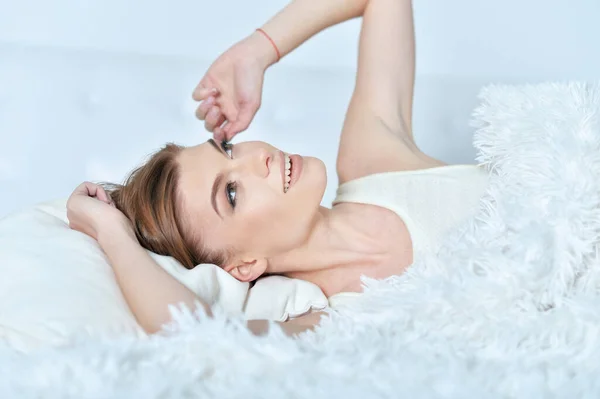
Table of Contents
ToggleTop 8 Bedtime Habits For A Glowing Skin
Cleanse Your Face Thoroughly
Before hitting the sack, gently cleanse your face to remove dirt, oil, and makeup residue. A clean canvas allows your skin to breathe and prevents clogged pores, which can lead to breakouts.
Apply Moisturizer
After cleansing, apply a nourishing moisturizer suited to your skin type. Hydration is essential for maintaining skin elasticity and preventing dryness and dullness.
Use a Retinol Serum
Incorporate a retinol serum into your nighttime routine. Retinol helps to stimulate collagen production, reduce wrinkles, and promote cell turnover, resulting in smoother and more youthful-looking skin.
Sleep on a Clean Pillowcase
Changing your pillowcase regularly can prevent the buildup of bacteria and oil that can transfer to your skin while you sleep. Opt for silk or satin pillowcases to minimize friction and reduce the risk of sleep creases.
Stay Hydrated
Drink a glass of water before bed to keep your skin hydrated from within. Proper hydration supports skin function and helps flush out toxins, contributing to a clearer complexion.
Limit Alcohol and Caffeine Intake
Avoid alcohol and caffeine before bedtime, as they can dehydrate your skin and disrupt your sleep cycle, leading to dull, tired-looking skin.
Practice Stress-Relief Techniques
Engage in relaxation techniques like deep breathing, meditation, or gentle yoga before bed. Managing stress levels can help prevent skin issues such as acne and eczema flare-ups.
Get Adequate Sleep
Ensure you get 7-9 hours of quality sleep each night. During sleep, your body repairs and regenerates cells, including those in your skin, leading to a refreshed and radiant complexion.
Cleansing
Cleansing is crucial for healthy skin, involving the removal of makeup and impurities, which can lead to clogged pores and breakouts. Properly cleansing the skin ensures a fresh canvas for skincare products to work effectively.
Removing makeup and impurities is essential for maintaining clear skin. It prevents pore congestion and allows the skin to breathe.
There are various types of cleansers available, including oil-based, water-based, and micellar water. Oil-based cleansers are excellent for dissolving makeup and sunscreen, while water-based cleansers are ideal for removing sweat and dirt. Micellar water is a gentle option for sensitive skin, effectively lifting away impurities.
The proper technique for cleansing involves wetting the face with lukewarm water, applying the cleanser in circular motions, and rinsing thoroughly. Avoid harsh scrubbing, which can irritate the skin.
It’s crucial to choose cleansers suitable for your skin type to avoid stripping away natural oils or causing irritation. For oily skin, opt for oil-free or gel-based cleansers. Dry skin benefits from creamy or hydrating cleansers. Those with sensitive skin should choose fragrance-free and gentle formulas.
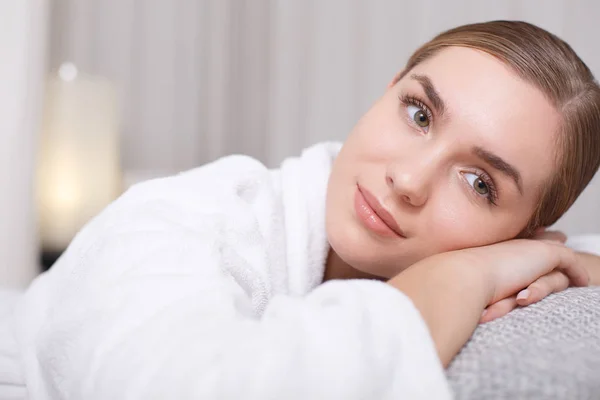
Exfoliation
Explanation of exfoliation and its benefits
Exfoliation, the process of removing dead skin cells, is essential for maintaining healthy skin. By sloughing off dead cells, exfoliation reveals smoother, brighter skin underneath. This helps to unclog pores, reduce acne, and improve overall skin texture.
Types of exfoliants (chemical vs. physical)
There are two main types of exfoliants: chemical and physical. Chemical exfoliants, like alpha hydroxy acids (AHAs) and beta hydroxy acids (BHAs), dissolve dead skin cells. Physical exfoliants, such as scrubs or brushes, physically remove them through friction.
Frequency of exfoliation based on skin type
The frequency of exfoliation varies based on skin type. For oily or acne-prone skin, exfoliating 2-3 times a week may be suitable. Normal or combination skin types may benefit from exfoliating 1-2 times a week. However, those with sensitive or dry skin should exfoliate less frequently, perhaps once a week or even less often.
Caution on over-exfoliation
Over-exfoliation can lead to irritation, redness, and even damage to the skin barrier. Signs of over-exfoliation include increased sensitivity, dryness, or a burning sensation. It’s important to start slowly when introducing exfoliation into your skincare routine and to listen to your skin’s needs.
Moisturizing
Benefits of moisturizing before bed
Moisturizing before bed can replenish skin moisture lost during the day and promote overnight skin repair. It helps prevent dryness, flakiness, and premature aging, leaving skin soft, supple, and radiant in the morning.
Importance of choosing the right moisturizer
Choosing the right moisturizer is crucial as it ensures your skin gets the specific nourishment it needs. Look for ingredients like hyaluronic acid for hydration, antioxidants for protection, and ceramides for barrier repair. Avoid heavy fragrances and comedogenic ingredients if you have sensitive or acne-prone skin.
Application techniques for different skin types
For dry skin, apply moisturizer in gentle upward strokes to lock in moisture. Oily skin benefits from lightweight, non-comedogenic formulas applied with a light touch. Combination skin may require different moisturizers for different areas, while sensitive skin benefits from patting rather than rubbing to avoid irritation.
Using additional treatments like serums or oils
Serums and oils can be used in conjunction with moisturizer for added benefits. Apply serums with active ingredients before moisturizer to target specific concerns like hyperpigmentation or fine lines. Oils, such as jojoba or rosehip, can be used as a final step to seal in moisture and provide extra nourishment.
Eye Care
The skin around the eyes is delicate and needs special care. It’s vital to address this area to prevent premature aging and maintain a youthful appearance. Eye creams and gels come in various types, including anti-aging, hydrating, and depuffing formulas. Applying eye cream properly is crucial for maximum effectiveness.
Use your ring finger to gently tap the product around the eye, avoiding pulling or tugging on the skin. For specific concerns like dark circles or fine lines, additional treatments can be used alongside eye creams for better results.
These treatments may include serums, patches, or specialized masks. By incorporating these practices into your skincare routine, you can ensure your eyes look their best and maintain a youthful appearance.
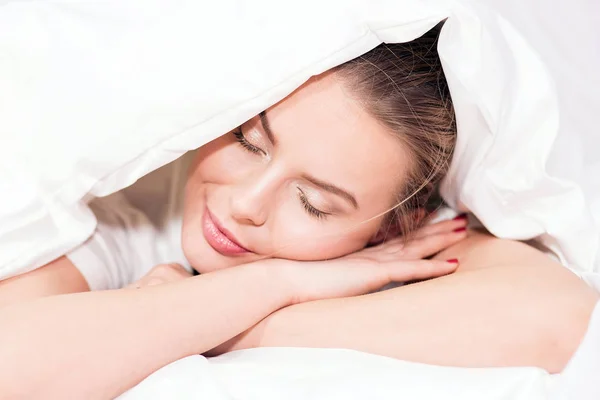
Hydrating Masks or Treatments
Explanation of Hydrating Masks/Treatments
Hydrating masks and treatments are skincare products designed to replenish moisture in the skin. These products often contain ingredients like hyaluronic acid, glycerin, or aloe vera, which help to hydrate and soothe the skin.
Benefits of Using Masks or Treatments Before Bed
Using hydrating masks or treatments before bed can provide numerous benefits. Firstly, they help to lock in moisture while you sleep, leaving your skin feeling soft and hydrated in the morning. Additionally, these treatments can improve skin texture, reduce fine lines and wrinkles, and give your complexion a healthy glow.
Types of Masks (Sheet Masks, Overnight Masks, DIY Masks)
There are various types of hydrating masks available. Sheet masks are pre-soaked fabric masks that you apply directly to your face for a quick hydration boost.
Overnight masks are thicker creams or gels that you leave on overnight to deeply hydrate and repair the skin. DIY masks, made from ingredients like honey, yogurt, or avocado, can also be effective for hydrating the skin.
How to Incorporate into Your Bedtime Routine
Incorporating hydrating masks or treatments into your bedtime routine is easy. Start by cleansing your face to remove any makeup or impurities.
Then, apply the mask evenly to your face, avoiding the eye area. Leave the mask on for the recommended time or overnight for overnight masks. Finally, gently rinse off the mask in the morning and follow up with your regular moisturizer.
Lip Care
Importance of Lip Care in Skincare Routine
Lip care is crucial in any skincare regimen, as neglected lips can become dry, cracked, and uncomfortable. Nourishing the lips maintains their softness and suppleness, contributing to an overall youthful appearance.
Without proper care, lips can suffer from dehydration, leading to discomfort and a dull appearance. Including lip care in your skincare routine ensures your lips stay healthy and moisturized.
Types of Lip Balms/Treatments (Hydrating, Exfoliating)
Lip balms and treatments come in various forms, including hydrating and exfoliating options. Hydrating lip balms replenish moisture, keeping lips soft and smooth. Exfoliating treatments remove dead skin cells, revealing healthier, rejuvenated lips.
Choose lip products with ingredients like shea butter, coconut oil, or hyaluronic acid for maximum hydration. For exfoliation, look for balms containing gentle exfoliants like sugar or fruit enzymes.
Proper Application Technique
Proper application of lip care products ensures maximum effectiveness. Start by gently exfoliating the lips to remove any dead skin. Apply a thin layer of hydrating balm, starting from the center and moving outward. Use your fingertip or a lip brush for even coverage.
For exfoliating treatments, massage onto clean lips in a circular motion, then rinse off with warm water. Reapply lip balm throughout the day as needed to maintain hydration.
Addressing Specific Lip Concerns (Dryness, Chapping)
Specific lip concerns like dryness and chapping require targeted treatments. To combat dryness, use a thick, emollient lip balm with ingredients like shea butter or beeswax. For chapped lips, opt for a healing balm containing soothing ingredients like aloe vera or vitamin E.
Avoid licking your lips, as saliva can exacerbate dryness. Drink plenty of water to keep your body hydrated, which in turn helps maintain lip moisture. Regular lip care ensures your lips remain smooth, soft, and kissable.
Sleep Environment
Creating the perfect sleep environment is crucial for skincare and overall well-being. This includes selecting the right pillowcase material, such as silk or satin, which reduces friction and prevents wrinkles. Using a humidifier helps maintain optimal moisture levels in the air, promoting healthy skin.
To enhance sleep quality, it’s important to avoid screens before bedtime and engage in calming rituals like reading or meditation. By optimizing your sleep environment, you can wake up feeling refreshed and with glowing skin.
Healthy Habits
Hydration before bed
Ensuring you’re well-hydrated before bedtime can enhance your sleep quality. Drinking water before sleeping helps regulate body functions and aids in overnight recovery.
Staying hydrated before bed prevents waking up thirsty in the middle of the night. Hydrating before sleep promotes cell regeneration and toxin removal. Avoiding heavy meals and caffeine:
Avoid heavy meals and caffeine close to bedtime for better sleep. Steer clear of caffeine and large meals at least a few hours before bedtime. Heavy meals and caffeine late in the day can disrupt your sleep cycle.
Opt for lighter, easy-to-digest foods and beverages in the evening. Incorporating relaxation techniques (meditation, deep breathing):
Incorporating relaxation techniques like meditation or deep breathing can calm your mind before sleep. Practice meditation or deep breathing exercises to relax your body and mind. Meditation and deep breathing promote relaxation, aiding in falling asleep faster.
Relaxation techniques can alleviate stress and anxiety, helping you to sleep more soundly. Benefits of a consistent sleep schedule:
Maintaining a consistent sleep schedule offers numerous health benefits. A consistent sleep schedule regulates your body’s internal clock, promoting better sleep.
Having a regular sleep routine enhances overall sleep quality and duration. Consistent sleep schedules improve cognitive function, mood, and overall well-being.
Skincare Supplements
Overview of supplements for skin health
Skincare supplements are becoming increasingly popular as people seek holistic ways to improve their skin. These supplements are designed to complement your skincare routine and promote healthy skin from within. They often contain essential vitamins, minerals, and other nutrients to support skin health.
Types of supplements (vitamins, collagen, probiotics)
Skincare supplements come in various forms, each targeting different aspects of skin health. Vitamins like A, C, and E are commonly found in skincare supplements, known for their antioxidant properties.
Collagen supplements help maintain skin elasticity and reduce signs of aging. Probiotics aid in balancing gut health, which is linked to skin conditions like acne and eczema.
Consulting with a healthcare professional before taking supplements
Before adding any supplements to your skincare regimen, it’s crucial to consult with a healthcare professional. They can assess your specific needs and recommend the right supplements for you.
This ensures you’re taking supplements that are safe and effective for your skin. Always prioritize professional advice when it comes to your skincare routine.
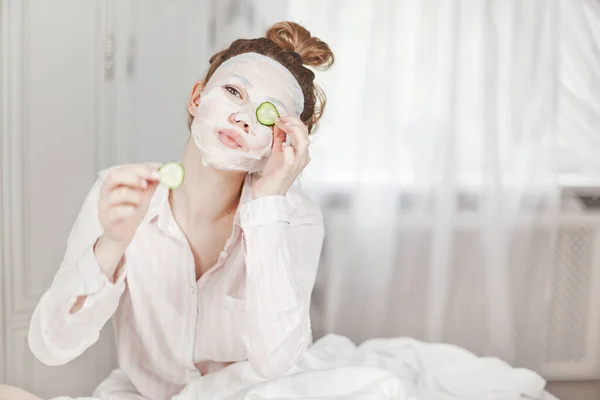
FAQs
Why are bedtime habits important for glowing skin?
Bedtime habits are crucial because your skin repairs and rejuvenates itself during sleep. Proper habits ensure your skin gets the rest and care it needs to glow.
How does sleep affect skin health?
During sleep, the body repairs and regenerates cells, including skin cells. Lack of sleep can lead to dullness, dark circles, and even premature aging.
What are the top 8 bedtime habits for glowing skin?
These include cleansing your face, moisturizing, using a quality pillowcase, staying hydrated, avoiding heavy meals, practicing relaxation techniques, maintaining a consistent sleep schedule, and applying overnight treatments.
Why is cleansing important before bedtime?
Cleansing removes dirt, oil, and makeup that can clog pores and lead to breakouts. It allows your skin to breathe and absorb skincare products more effectively.
How does moisturizing help with glowing skin?
Moisturizing keeps your skin hydrated, preventing dryness and flakiness. It also helps to seal in moisture and protect the skin’s natural barrier.
Why should I use a quality pillowcase?
Quality pillowcases, such as silk or satin, reduce friction on the skin, preventing wrinkles and hair breakage. They also absorb less moisture, helping your skin retain its natural oils.
How does hydration affect skin appearance?
Hydration is essential for plump, glowing skin. Drinking enough water keeps your skin cells hydrated from within, resulting in a more youthful appearance.
Why is it important to avoid heavy meals before bedtime?
Heavy meals close to bedtime can disrupt your digestion and lead to acid reflux, which can affect your skin’s health. Opt for lighter, easily digestible foods to promote better sleep and skin health.
What relaxation techniques are beneficial for glowing skin?
Techniques like meditation, deep breathing, and gentle yoga can help reduce stress levels, which in turn can improve skin health by reducing inflammation and promoting better sleep.
How does maintaining a consistent sleep schedule impact skin?
Consistent sleep patterns regulate your body’s internal clock, promoting better overall health, including skin health. Irregular sleep can lead to imbalances in hormones that affect skin conditions like acne and aging.
What are some effective overnight treatments for glowing skin?
Overnight treatments like serums containing retinol or hyaluronic acid, sleeping masks, and facial oils can deeply nourish and repair your skin while you sleep, leaving it glowing and rejuvenated by morning.
How soon can I expect to see results from following these bedtime habits?
Results vary depending on individual skin types and conditions. However, with consistent practice of these bedtime habits, you may start noticing improvements in your skin’s texture and glow within a few weeks.
Can these bedtime habits help with specific skin concerns like acne or aging?
Yes, these habits can help with various skin concerns. For acne, keeping your skin clean and hydrated can reduce breakouts, while for aging, proper hydration and overnight treatments can help minimize fine lines and wrinkles.
Conclusion
In conclusion, adopting a set of bedtime habits geared towards skincare can significantly enhance the health and appearance of your skin. From thorough cleansing to adequate hydration and relaxation techniques, each habit plays a crucial role in promoting a radiant complexion.
By consistently following these top 8 bedtime habits, you not only improve the condition of your skin but also contribute to overall well-being and a sense of self-care.
Remember, skincare is not just about products; it’s about nurturing yourself inside and out, and your bedtime routine is the perfect opportunity to do so. So, embrace these habits, and wake up every morning with skin that glows with health and vitality.
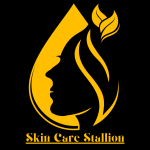
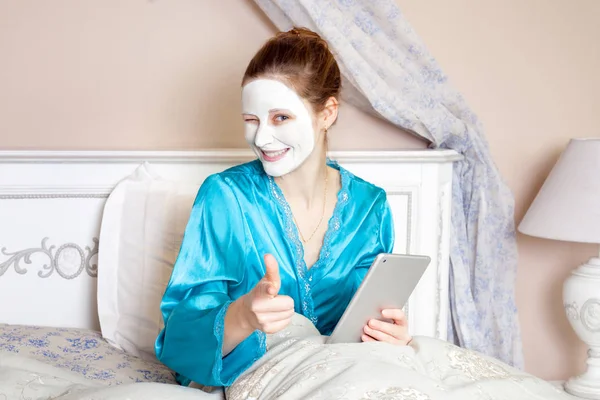
Your point of view caught my eye and was very interesting. Thanks. I have a question for you.